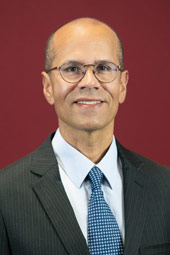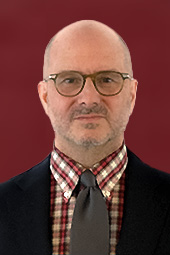Philosophy
What Are You Going to Do with a Major in Philosophy?
Plenty!
You’re going to take your new abilities—mastering and organizing new ideas; thinking analytically; communicating clearly and persuasively; evaluating evidence; reasoning soundly—into a fluid new economy and do very well for yourself.
You’re going to master the LSAT and go to a great law school; dominate the MCAT and go to med school; vanquish the GMAT and go to business school; or conquer the GRE and go to grad school.
You’re going to apply your newfound critical thinking skills to see through cultural and intellectual fads; protect yourself from the often empty posturing of politicians; be wise to the slippery claims of advertisers; and shield yourself from baseless opinions.
You're going to grow in self-esteem, confidence and foresight; know yourself better as an individual so you have a better sense of where you want to go in the long run; understand and enjoy more in life; and be well situated to take up the most important and fundamental human questions about reality, knowledge, morality and all other aspects of the human experience.
What are you going to do with a major in philosophy? Anything at all.
Undergraduate Programs
Did you know that in the normal course of study at Detroit Mercy most students will take two to three philosophy courses? This makes most Detroit Mercy students prime candidates for an 18-credit hour philosophy minor or a second major that will add good value to any degree.
-
Major - Philosophy
Degree: Bachelor of Arts
Major: PhilosophyIt's true that most students who first major in philosophy are either pre-law or intending to do graduate study in philosophy. But philosophy is an excellent second major that complements any student's primary area of study, offering you extremely practical and in-demand skills that will serve you well in any career. Whatever your first major, philosophy will help you see more deeply into its founding principles and concepts, see all sides of the various issues in your field, hone your critical thinking skills, help you to apply rigorous logic in solving problems, and to communicate more effectively.
University of Detroit Mercy's philosophy major consists of 10 courses, three of which you can use to complement your primary area of study.
To obtain this undergraduate degree, the student must fulfill the requirements of the University core curriculum, the requirements for the 30-credit-hour program major and have completed a minimum of 120 credit hours.
Download Sample Curriculum (pdf) ▶ Undergraduate Catalog Information ▶
-
Accelerated 6-Year Law Scholars Program (3+3)
Are you ready to accelerate your law career? Detroit Mercy’s innovative Accelerated 6-Year Law Scholars Program enables you to earn both a bachelor's degree and a Juris Doctor degree in only six years rather than the traditional seven. Philosophy is an approved major for this program. Students must meet program entrance criteria.
- Earn a law degree in less time.
- Your space in the Detroit Mercy School of Law is reserved.
- Receive exclusive access to "law only" events such as the Lunch with a Lawyer series.
- Meet and network with judges and other legal professionals.
-
Minor - Philosophy
A University of Detroit Mercy philosophy minor is an excellent complement to any major, offering you extremely practical and in-demand skills that you can take from classroom to career. Whether you will begin your career path after graduation or continue on to graduate school, a philosophy minor will hone your critical thinking skills and help you to see all sides of an issue, apply rigorous logic and to communicate more effectively.
Detroit Mercy's philosophy minor consists of six courses, three of which you can customize to your specific interests, including business, law, history, health care, architecture, science, religious studies or psychology. -
Department of Philosophy Mission Statement
The Department of Philosophy is committed to sustaining the Catholic-Jesuit-Mercy model of higher education through our delivery of the essential Core courses that define these traditions. Engagement with philosophy is central to a meaningful liberal arts education. We believe it is also central to empowering students as morally conscientious and thoughtful citizens in a pluralist democracy. Accordingly, the department seeks to provide a student center-centered philosophical education that fosters critical thinking, intellectual empathy, responsible citizenship and life-long reflection on fundamental questions related to the nature of truth, reality, humanity, and moral value. The department also strives to enrich campus culture and engage the university’s surrounding community with philosophical activities that speak to pressing social issues.
-
Learning Outcomes of Major and Minor
- Philosophy majors and minors will be able to identify and analyze an argument.
- Philosophy majors and minors will be able to interpret a philosophical text.
- Philosophy majors and minors will be able to understand a diversity of viewpoints in one philosophical area.
Recent Detroit Mercy Alums! Testify!
Kevin DiSalle '14
Investment/Commercial Real Estate Analyst, Talmer Bank and Trust
Bachelor of Arts with majors in Philosophy and Financial Economics
I would recommend a philosophy major to students because I think it will give them a sense of how a purposeful life might be lived. It's difficult to find that with another, more professional major. The ability to recognize and create meaning in my life has been a product of my studies in philosophy. I also think it has formed my character in a good way.
Stacy A. Latta '09
Legislative Aide, Toledo City Council
Bachelor of Arts with majors in Philosophy and Political Science
The skills developed through my philosophy courses better prepared me for law school than any of my other courses in college. The Law School Admission Test (LSAT) has nothing to do with one's knowledge of the law, but rather with one’s logical capabilities. My required logic courses in my philosophy major were the best preparation I could have had for the LSAT. These courses made me much better at crafting arguments that were difficult for others to poke holes in, and argumentation is central to the practice of law. The way philosophers reason to get from an issue to a resolution is very similar to that used by court judges in writing their opinions. My study of philosophy got me through law school and it continues to help me in my present position with regard to drafting legislation and assisting council members perform their duties.
Steven Kustra '11
Attorney, Clark Hill PLC
Bachelor of Arts with majors in Philosophy and Political Science and a minor in Business Administration
Philosophy is the foundation of any good education because it teaches you to think and to process information, and it is relatable to every other subject in college because it deals with people in the most sublime way. It has helped me make important value judgments and has contributed to both my personal and professional success. I have successfully applied many of the skills I learned in philosophy--reasoning skills, logic, analysis, ethics, and my overall understanding of various ideas and opinions--in the field of law.
Amy Lapisardi '07
Novelist
Bachelor of Arts with a major in Philosophy
Philosophy has influenced how I think about things and how I look at the world. Of course, it helps in evaluating information critically and making arguments, but above and beyond that, philosophy raises profound questions that require one to think deeply about life. It also cultivates open-mindedness, since one has to be open to ideas and positions they wouldn't otherwise consider. Here I don't just mean ethics, but also areas such as metaphysics and epistemology.
Elysia Khalil '13
Community Outreach Officer
The Center for Michigan
Bachelor of Arts with a Major in Philosophy
Students should seriously consider a major in philosophy. In a world in which our generation is told to expect at least three career changes in a lifetime, I chose philosophy as a major because I knew whatever I ended up doing professionally, studying philosophy would make me a better person. There are infinite personal and professional benefits in studying philosophy, including but not limited to increased critical thinking abilities; the ability to produce concise and effective verbal and written statements; a developed process of methodological analysis that facilitates creative problem solving; and a more thorough understanding of the origin and evolution of the concepts, ethics, and political structures that drive our world forward. A philosophy major gives you the power to understand, articulate and act.
Andrew Laszczyk '13
Designer/Project Manager, Arconcepts Inc.
Bachelor of Arts with a major in Philosophy and a Master of Architecture
The critical thinking skills used in philosophy have greatly enhanced my ability to work in the field of architecture. The ability to view one concept/project from a multiplicity of viewpoints enables me to satisfy clients whose ideas differ greatly from my own. As a designer, the complexities of existence provides an infinite pool of inspiration and the study of philosophy provides an avenue for focusing that inspiration into theories that further enhance the built environment. Through the study of philosophy we become more conscious of who we are and how we choose to live. A major or minor in philosophy requires a sincere desire to understand the world in which we live. Choosing to put valuable time and energy into a philosophy degree is an investment in one's self and a sure way to better understand the profound topics that often affirm who we are and how we view ourselves.
Jason Brown '09
Master's Student in Education, Wayne State University
Bachelor of Arts with majors in Philosophy and English
I am currently working on earning my master's degree in elementary education and I firmly believe that the critical thinking, argumentation, and writing skills I learned through philosophy have all contributed to my success. Moreover, they are skills I wish to instill in my future students and foster those abilities from a young age. I believe that the education one receives in philosophy is invaluable and can be applied to any other area of study or life even if one does not choose to become a scholar of philosophy. I don't believe that the critical thinking skills can be replicated in any other field of study.

Destiny Proffett
Double Major: Biology and Philosophy
I've chosen to major in philosophy because it allows me to think not only critically but independently, and it opens up a new world of possibilities to some ideas and thoughts I've previously had. It also helps me construct ways to better clarify my thoughts and challenges me to look at things from different aspects.
George Latimer-Knight '03
Pastor &
Author
Bachelor of Arts with majors in Philosophy and Computer & Information Systems
Studying philosophy at [Detroit Mercy] taught me to think more deeply. While some see critical thinking as a "soft skill," I see it as an essential key to success. As an entrepreneur, I'm able to develop effective strategies that have proved lucrative. As a pastor, my philosophical training helps me resist the temptation to hide behind dogma and to actually keep my ministry relevant. As an author, philosophy honed my writing skills. As a current law school student, my philosophy foundation has kept me at a high class rank.
Valmir Merkaj '13
Teacher of English in Spain
A philosophy major opens doors to many different fields, including law, politics, and education. Studying philosophy has made me a better consumer of information, enabled me to decipher complex rhetoric, and respond with persuasive arguments. As a teacher of English I am able to better interact with students from different ethnicities, socio-economic levels, and backgrounds due to the open mindset that the study of philosophy instills.
Michael Taylor, Registered Nurse '09
Trauma ICU, Beaumont Health
Bachelor of Arts with a major in Philosophy
My philosophy degree gave me a foundation from which to understand western philosophical thought, especially as it relates to my interest in theology and faith. Philosophy also allows one to process information and arguments presented in a logical way. This helps in nearly all aspects of life. It is my personal opinion that every college student should be required to take Introduction to Philosophy as well as Logic.
Andrew Ball, Lecturer in Philosophy '07
University of Alabama at Birmingham
Bachelor of Arts with a major in Philosophy
Philosophy helps you think better. If you think better, you will do better in life. Philosophy has equipped me with the conceptual tools for thinking more deeply and constructively about all sorts of things in life--everything from relationships to politics to big life purchases, to things like morality, personhood, and community. Because I understand what these things are at a philosophical level, it better informs the way in which I think about them. You will have a better understanding of the presuppositions and assumptions that make everything else "tick," like religion, science, art, etc. And, for that reason, you'll gain incredible insight into whatever work or career you take up.
Detroit Mercy Philosophy. Go Farther.
On the LSAT: philosophy ties with economics for first place as the highest scoring major on the exam.
Source: Law School Admissions Council
On the GRE: philosophy majors beat all other majors on the verbal and analytic portions of the test.
Source: Educational Testing Service
On the MCAT: philosophy majors earn higher scores than those students who pursue a traditional science major.
On the GMAT: philosophy majors score higher than any other social science or humanities major.
Source: Profile of GMAT Candidates
Faculty

Kieran Aarons
Assistant Professor of Philosophy
313-993-1138
aaronska@udmercy.edu

Juan Carlos Flores
Professor of Philosophy
313-993-3318
floresju@udmercy.edu

David Koukal
Professor of Philosophy (retired 2025)
koukaldr@udmercy.edu

Martin Leever
Professor of Philosophy
313-993-1135
leevermg@udmercy.edu
Elizabeth Oljar
Assistant Professor of Philosophy
313-993-3388
oljarea@udmercy.edu

Gail Presbey
Professor of Philosophy
Director of the Carney Latin American Solidarity Archive
*
Department Chair of Philosophy
313-993-1124
presbegm@udmercy.edu

